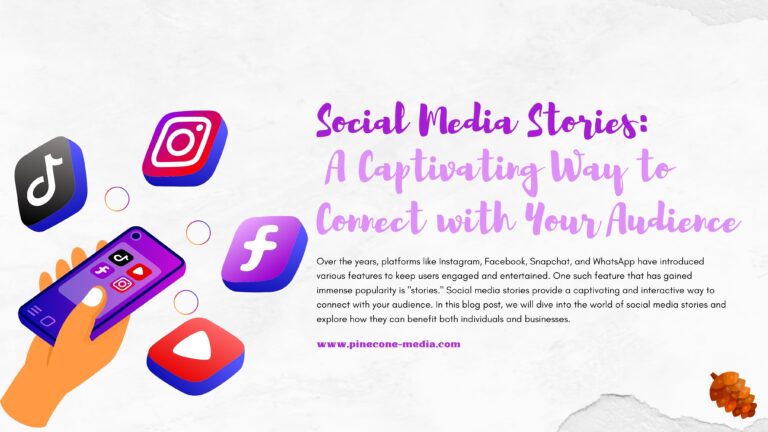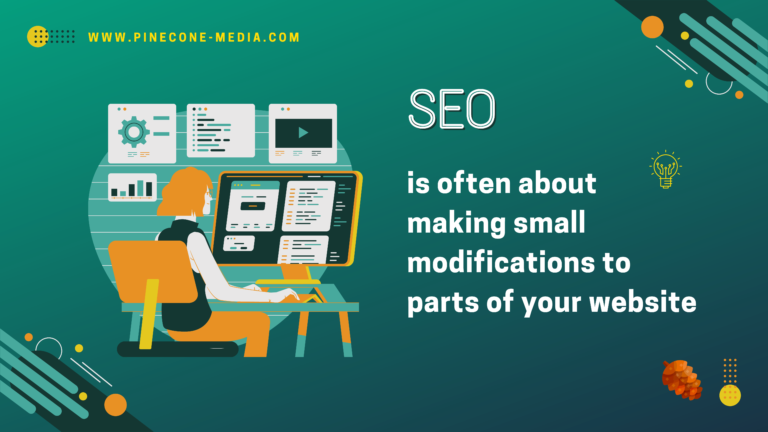Machine Learning: The Role of AI in Predicting Consumer Behavior
In the fast-paced world of digital marketing, machine learning has emerged as a game-changing technology that enables brands to predict consumer behavior with remarkable accuracy. By analyzing vast amounts of data, machine learning algorithms can identify patterns, make predictions, and help businesses deliver more personalized experiences to their customers. At Pinecone Media, we explore how machine learning is transforming the way marketers understand and engage with their audience.

What Is Machine Learning?
Machine learning (ML) is a subset of artificial intelligence (AI) that allows computers to learn from data and improve their performance over time without explicit programming. In the context of marketing, machine learning algorithms can analyze consumer behavior, detect trends, and predict future actions based on historical data.
How Machine Learning Predicts Consumer Behavior
Machine learning models are capable of analyzing vast amounts of customer data, including purchase history, browsing behavior, social media interactions, and more. These models can recognize patterns and use them to predict consumer preferences, purchase likelihood, and even the best time to reach customers with personalized offers.
Here are some key ways machine learning is used to predict consumer behavior:
- Personalized Recommendations- One of the most widely recognized applications of machine learning is in personalized product recommendations. E-commerce giants like Amazon and Netflix use machine learning algorithms to analyze customer data and suggest products or content that align with individual preferences. By analyzing factors like browsing history, past purchases, and related products, machine learning helps brands deliver highly relevant recommendations, increasing the likelihood of a sale.
- Predictive Analytics- Machine learning allows marketers to predict consumer behavior by analyzing historical data. Predictive analytics can forecast which customers are most likely to make a purchase, churn, or engage with a campaign. With these insights, businesses can target the right customers with tailored marketing efforts, ensuring better engagement and higher conversion rates.
- Customer Segmentation- Machine learning can identify and categorize customers into specific segments based on their behavior and preferences. This enables marketers to create highly targeted campaigns for each segment, ensuring that messages resonate with the audience. By offering personalized content to different customer segments, businesses can improve their marketing efficiency and drive better results.
- Dynamic Pricing- Retailers and e-commerce platforms are using machine learning algorithms to optimize pricing strategies in real-time. By analyzing factors like demand, competition, and customer behavior, machine learning models can recommend dynamic pricing that maximizes revenue and meets consumer expectations.
- Enhanced Customer Support- Machine learning-driven chatbots are transforming customer service by providing instant responses and predicting customer needs. These AI-powered chatbots can resolve common inquiries, recommend products, and even predict when a customer might need assistance based on their browsing history or purchasing patterns.
Benefits of Machine Learning in Marketing
The integration of machine learning into digital marketing strategies offers numerous benefits, including:
- Improved Personalization: Machine learning allows marketers to deliver highly personalized content, recommendations, and offers, resulting in stronger customer relationships and loyalty.
- Better Decision-Making: With predictive analytics, marketers can make more informed decisions about customer targeting, campaign timing, and product offerings.
- Increased Efficiency: Machine learning automates time-consuming tasks such as data analysis, segmentation, and targeting, allowing marketing teams to focus on creative and strategic efforts.
- Higher ROI: By delivering more relevant content to the right customers, machine learning improves conversion rates and overall marketing ROI.
The Future of Machine Learning in Predicting Consumer Behavior
As technology continues to evolve, the role of machine learning in predicting consumer behavior will only expand. The integration of AI-driven tools will enable businesses to understand customers at a deeper level, anticipate their needs, and offer personalized solutions in real time.
Advancements in machine learning are expected to refine predictive models further, incorporating even more complex data sets such as voice search, facial recognition, and biometric data to enhance customer insights. The future of marketing lies in the ability to predict consumer actions with greater accuracy, and machine learning is paving the way for this transformation.
Machine learning is revolutionizing how businesses predict and respond to consumer behavior. By leveraging AI-driven algorithms, brands can gain deeper insights into their customers’ preferences, deliver personalized experiences, and optimize their marketing strategies for maximum impact. At Pinecone Media, we help businesses harness the power of machine learning to stay ahead in the ever-evolving digital landscape and create meaningful connections with their audience.
Machine Learning, Predicting Consumer Behavior, AI in Marketing,Consumer Data,Personalized Marketing




